Florida’s Black Churches Stand Against DeSantis – ‘We Don’t Need Government Approval To Teach Our History’
Around 30 individuals attended an online session on Wednesday evening to delve into the topic of the trans-Atlantic slave trade. For Pastor Kenneth Johnson of Fort Pierce, Florida, this turnout was a hopeful sign that his congregation had a genuine interest in exploring Black history further.
The Online Class Wasn't A Sermon
The one-hour video class marked the beginning of a series that Friendship Missionary Baptist Church intends to host during the fall season. Pastor Johnson emphasized that this session was not a sermon; it could pass as a legitimate educational class. He asserted, “We don’t need government approval to teach our history.”

E-learning online education or internet encyclopedia concept. Open laptop and book compilation in a classroom. 3d illustration
Imparting Knowledge
Friendship Missionary is just one of over 200 predominantly Black churches in Florida taking steps to impart Black history knowledge, partly due to what faith leaders perceive as limitations and “watered-down” versions of history being taught in schools, influenced by the state’s new policies. Equipped with a newly developed Black history toolkit, pastors are delivering unfiltered lessons during Sunday school, Bible Study, or as part of their sermons.
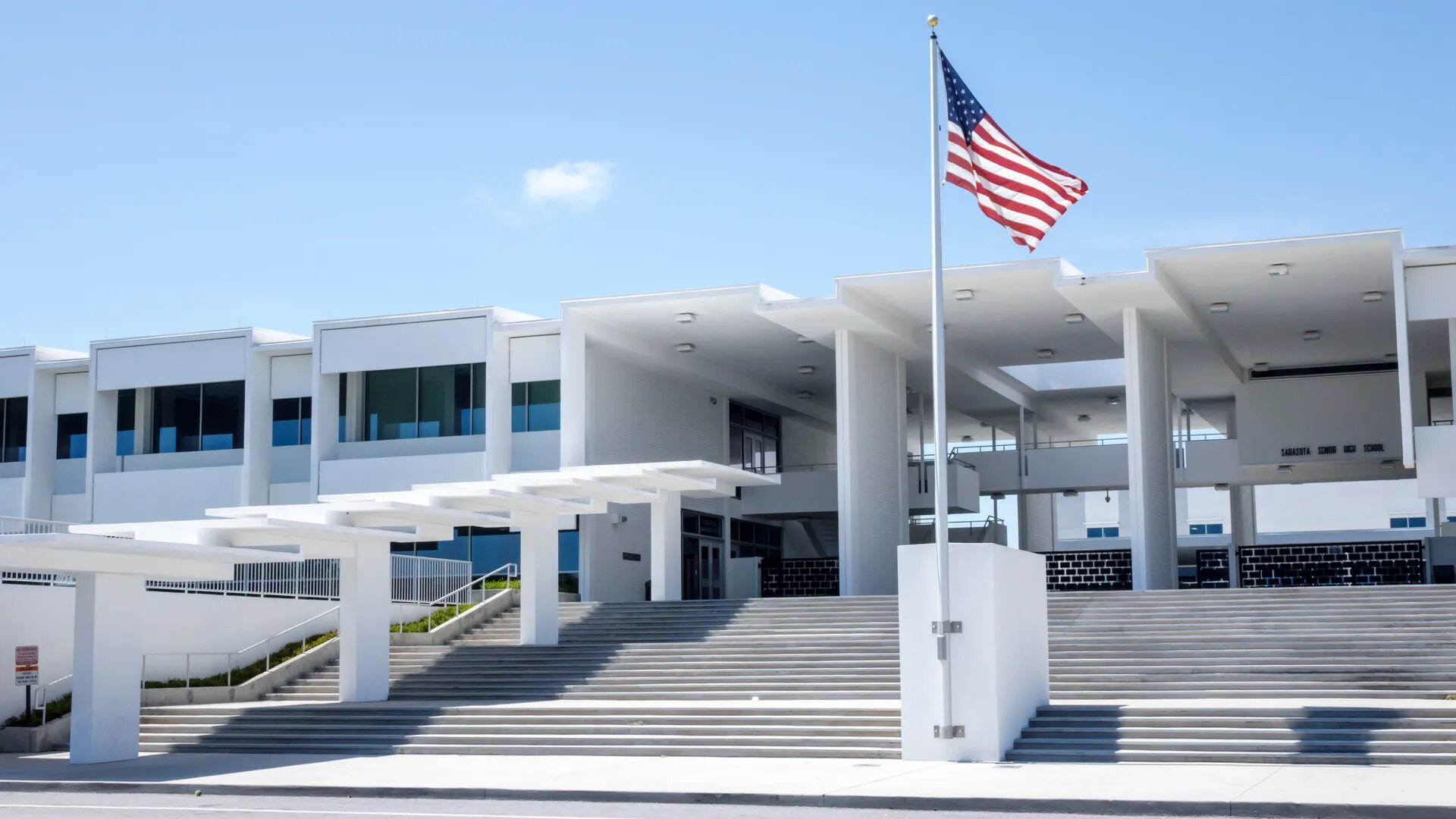
Source: Jeff Greenberg / Universal Images Group via Getty Images
Conservatives Are Trying To Prevent Teaching Parts Of History
Faith in Florida, a coalition of churches advocating for social justice causes, introduced this online toolkit in July. It includes a range of resources such as books, documentaries, and videos related to Black history. The initiative aims to counter state efforts to regulate Black history instruction. Florida is one of several states where predominantly conservative lawmakers are leading initiatives to restrict the teaching of certain aspects of Black history.
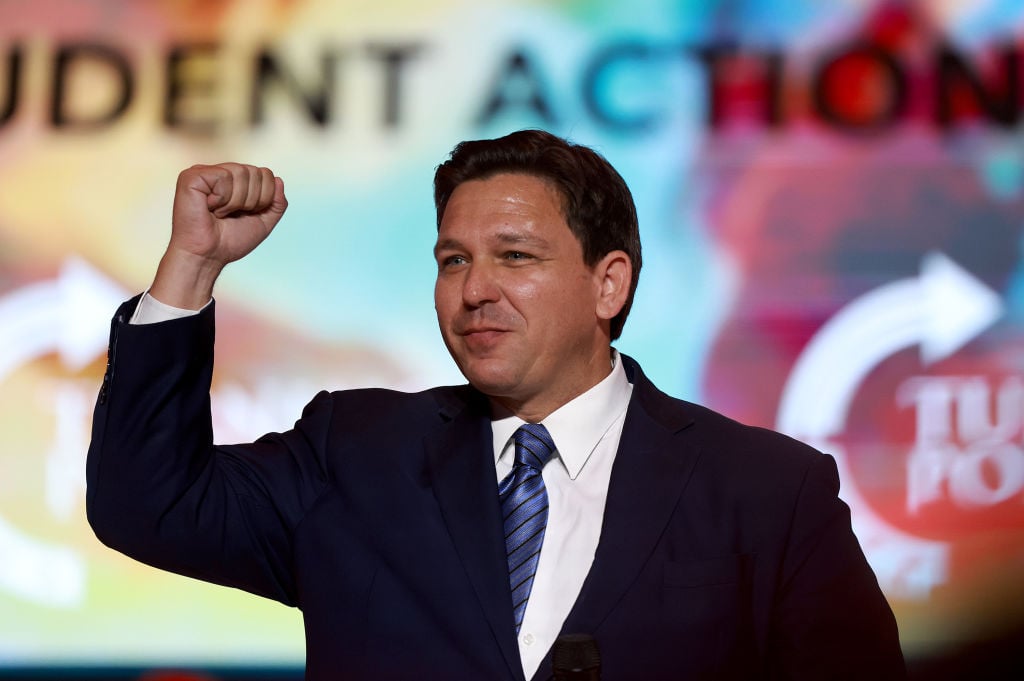
Source: Joe Raedle/Getty Images
"It Happened"
Rhonda Thomas, the executive director of Faith in Florida, emphasized the importance of preserving and recounting history, saying, “We have a responsibility as a whole to make sure our history is not erased or watered down and that it be told. It happened. It’s history.”

Source: libre de droit/ iStock
Educating About Black History
This role of educating about Black history is not new for Black churches, as they have historically bridged education gaps in their communities. Historians acknowledge the ongoing significance of these lessons.
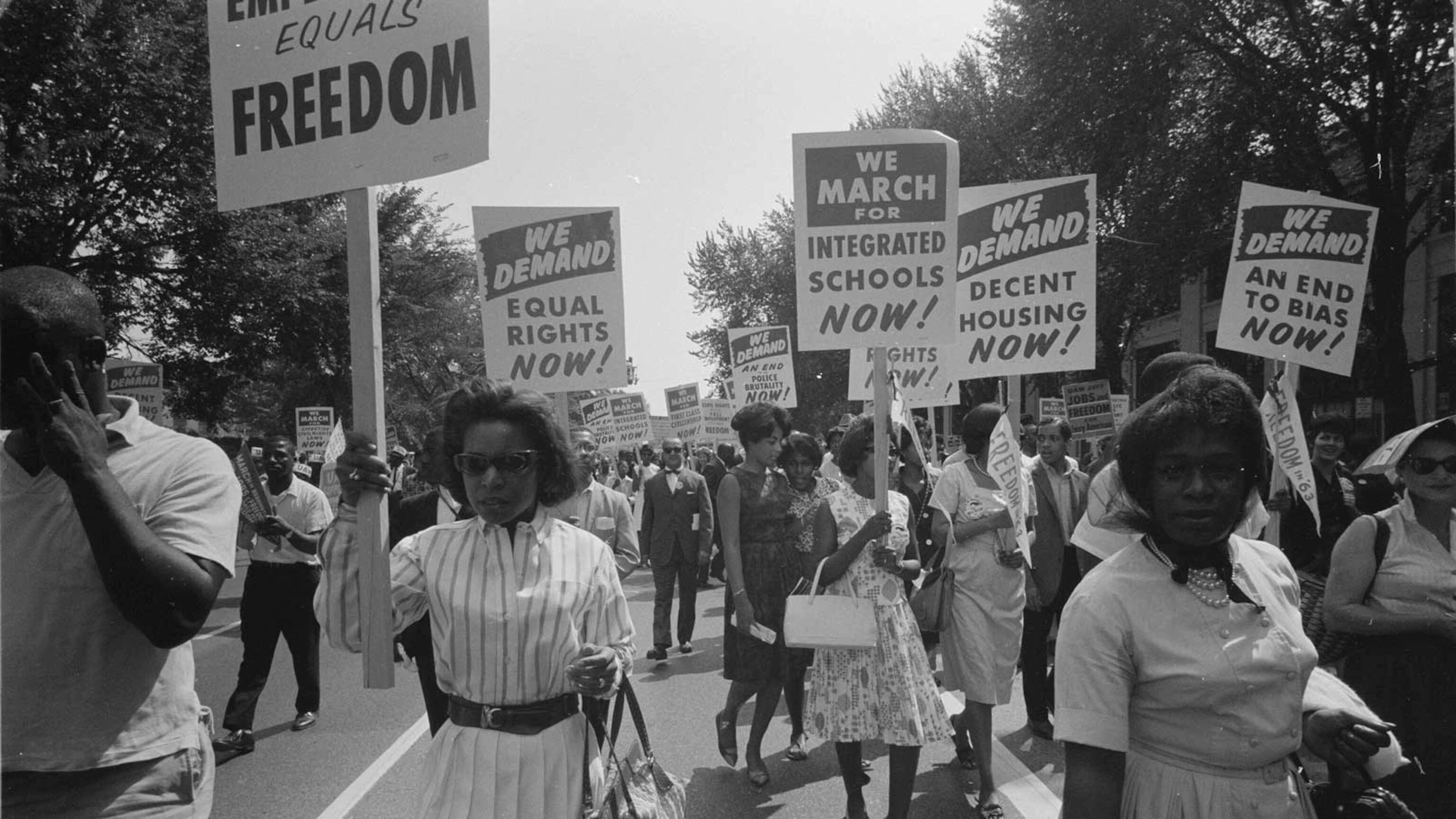
Source: Alamy
Public Institutions
Howard Robinson, a historian at Alabama State University in Montgomery, noted, “It’s not farfetched to think that a (Black) church is going to be able to provide educational opportunities where they see public institutions failing.”

Source: Stella/ Getty Images
DeSantis Implements Restrictions
Florida’s Republican Governor Ron DeSantis has spearheaded efforts in the state to implement policies that restrict the teaching of certain topics, including race, sexuality, and gender, in schools and colleges.
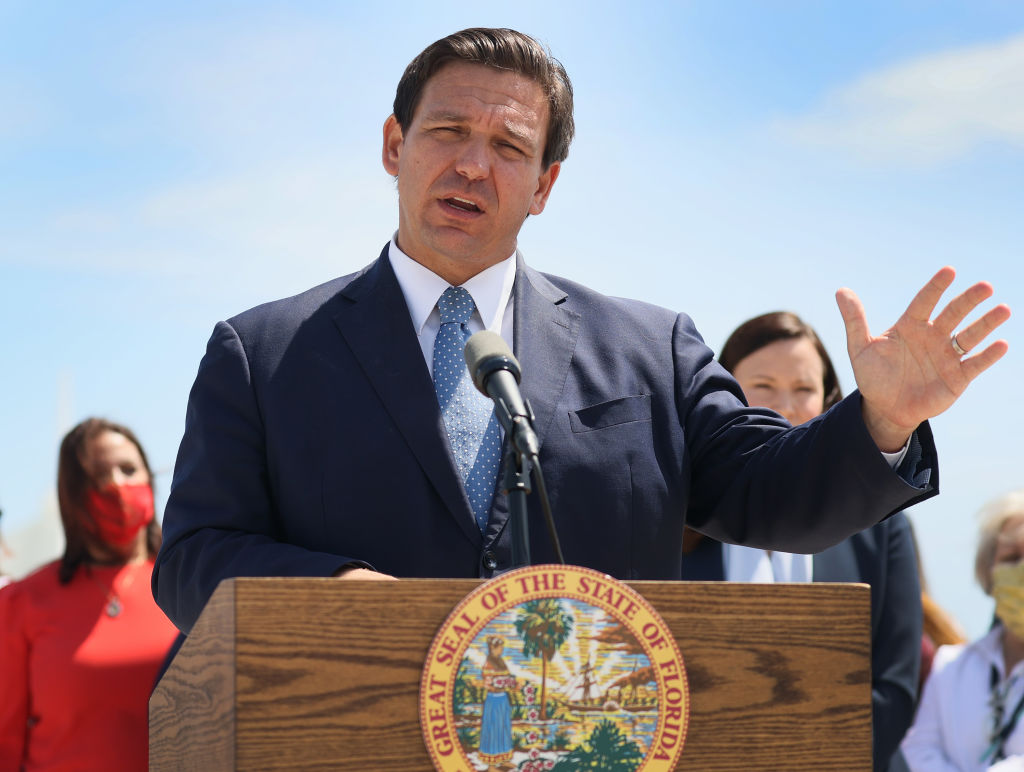
Source: Joe Raedle/Getty Images
Not Using State Funds
This year, DeSantis signed legislation prohibiting the use of state funds to support diversity and inclusion programs at public universities, arguing that these programs were being used to promote an ideological agenda. Florida also banned the College Board’s Advanced Placement African American Studies course, stating that African-American history was already being taught in schools and that some course material violated state law.
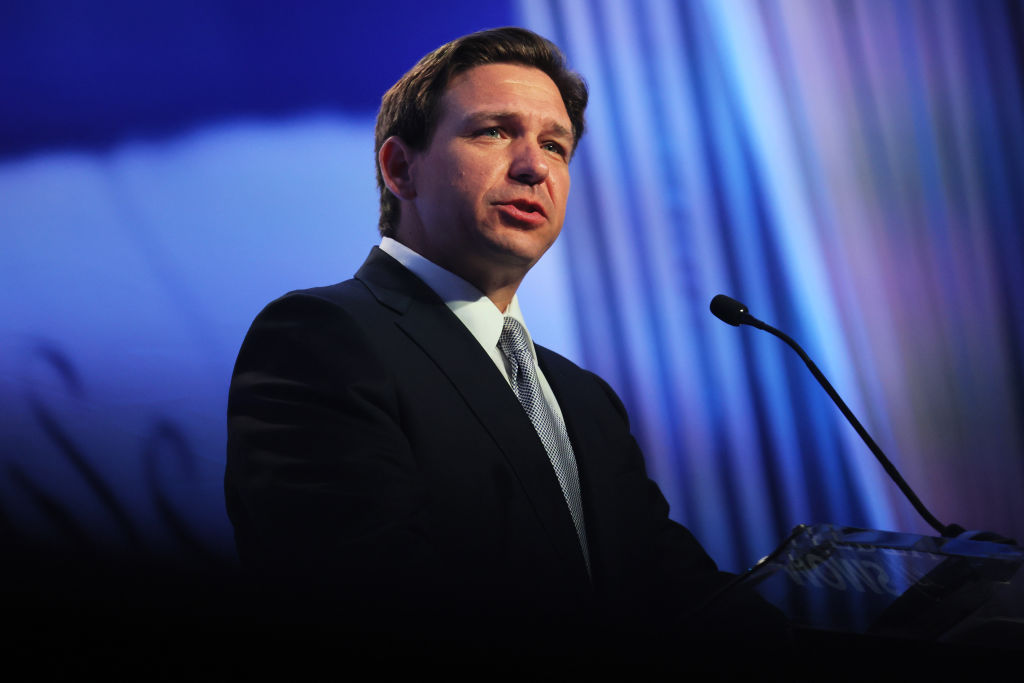
Source: Michael M. Santiago/ Getty Images
Neglecting Important Elements
In July, the state Board of Education approved social studies standards covering African-American history instruction from kindergarten through 12th grade. Advocates of these standards contend that they encompass factual content. However, detractors argue that they neglect crucial historical elements, including the state’s involvement in slavery and the systematic disenfranchisement of Black individuals.
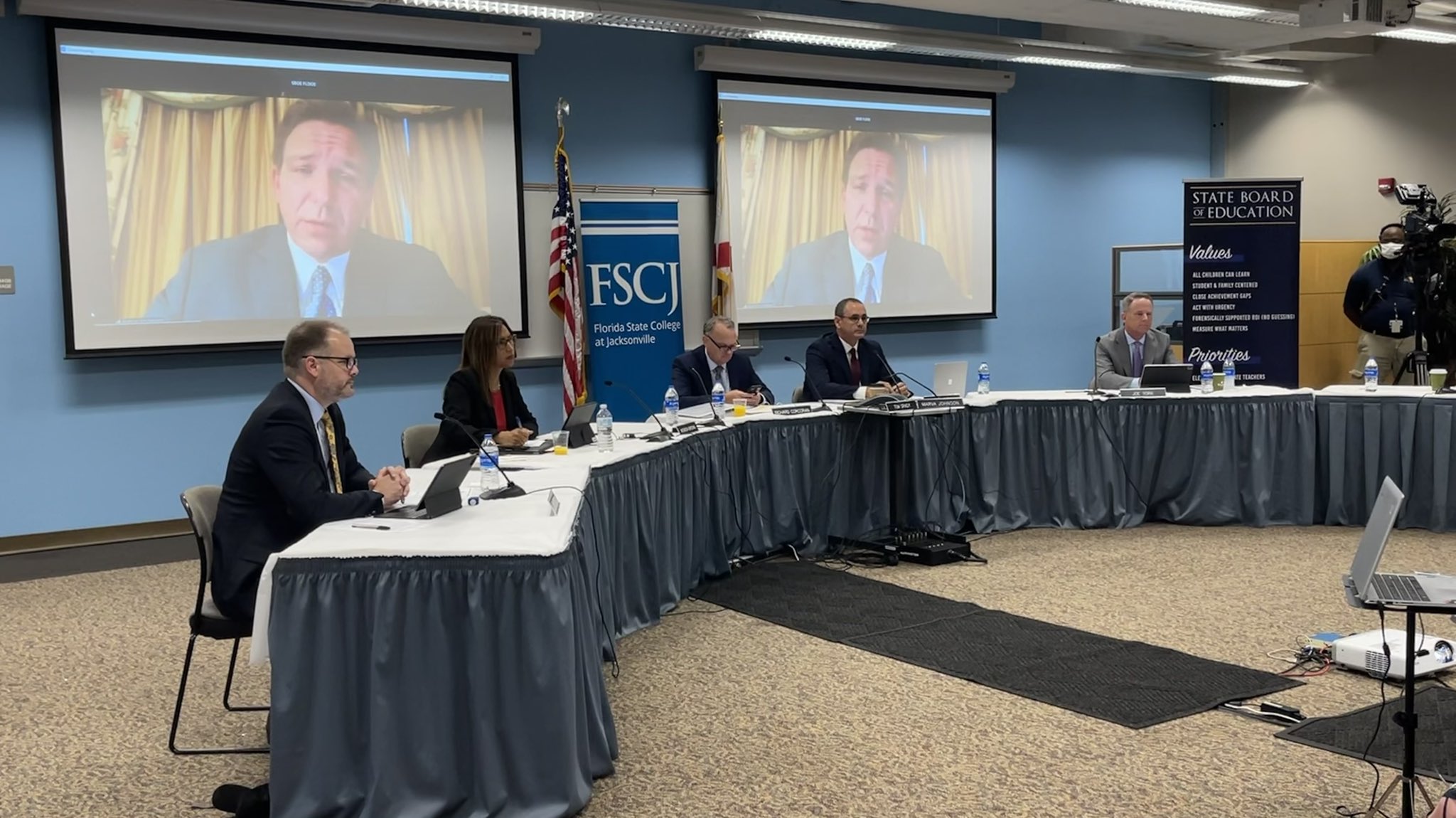
Source: Florida Department of Education/ X
African-American History Toolkit
Despite these challenges, Black churches are using the toolkit provided by Faith in Florida to guide their lesson planning. The toolkit covers various topics, including “Africa to America,” which delves into the slave trade, and “Racial Terrorism and Civil Unrest,” which includes materials on the Civil Rights Movement.
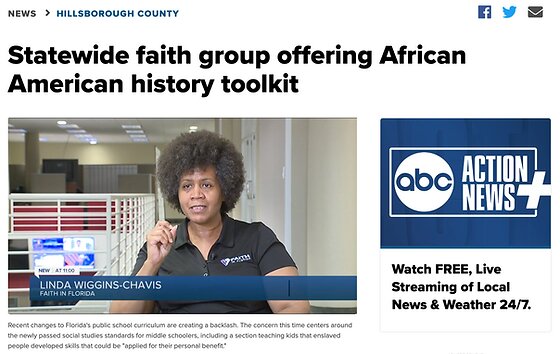
Source: Faith in Florida
Fighting Against State-Enforced Restrictions
These pastors are determined to ensure that Black history remains an integral part of their education efforts, even in the face of restrictions imposed by state officials. They believe that the church provides a crucial platform for this education.
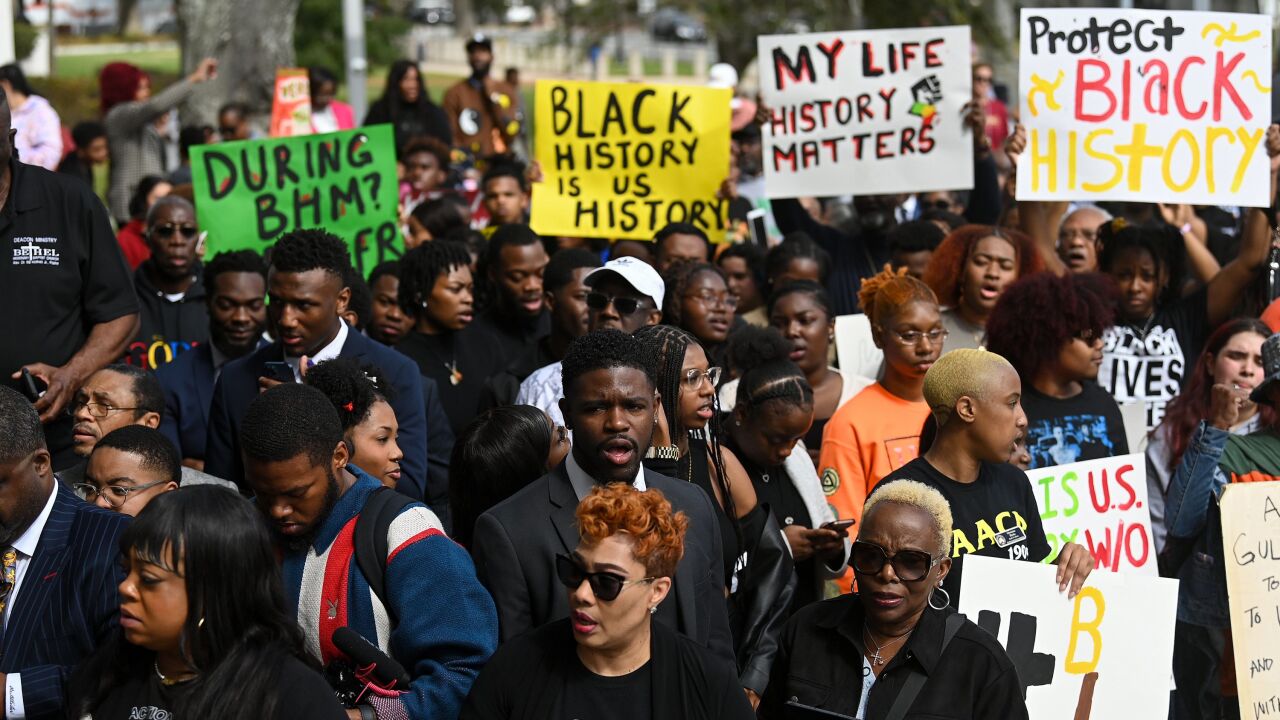
Source: Joshua Lott/The Washington Post/Getty Images
The Role Of Faith And Community Leaders
Tony F. Drayton, St. James Church’s head pastor in Riviera, near West Palm Beach, emphasized the responsibility of faith and community leaders in teaching African-American history. He explained, “We have such a captive audience. From the pulpit, we have to be as woke as possible. I’m going to use that word intentionally.”
The Black history toolkit is designed to assist both those new to Black history and those well-versed in it. It offers resources on various topics, and it will continue to be updated.
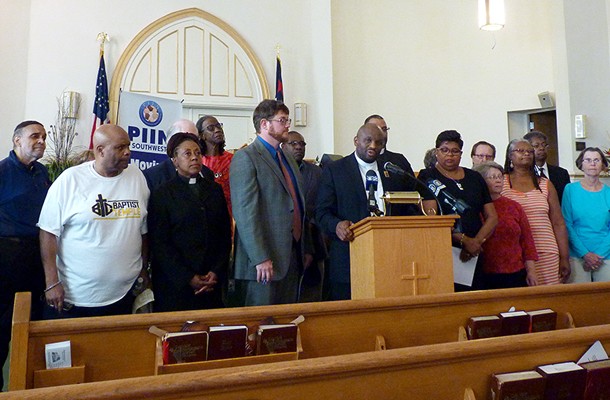
Source: Ryan Deto/ Pittsburgh City Paper
Churches Teach Their Own History
Faith leaders from predominantly white churches have also expressed interest in the toolkit, indicating its potential impact beyond Florida. As Rhonda Thomas noted, “It’s not just a Florida problem.”
“Our churches will teach our own history, ” Thomas said.
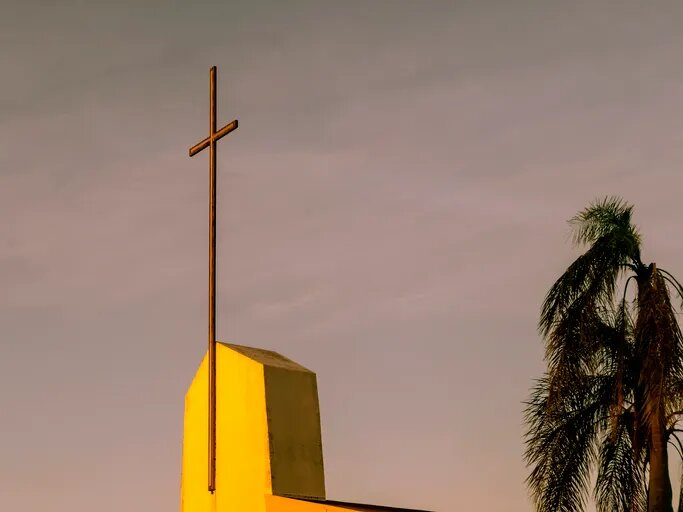
Source: imagedepotpro / Getty
Passed Down And Preserved
In the absence of formal education, these churches are committed to ensuring that Black history continues to be passed down and preserved. The Black church has historically played a pivotal role in civic engagement and education within Black communities, and this tradition endures today.
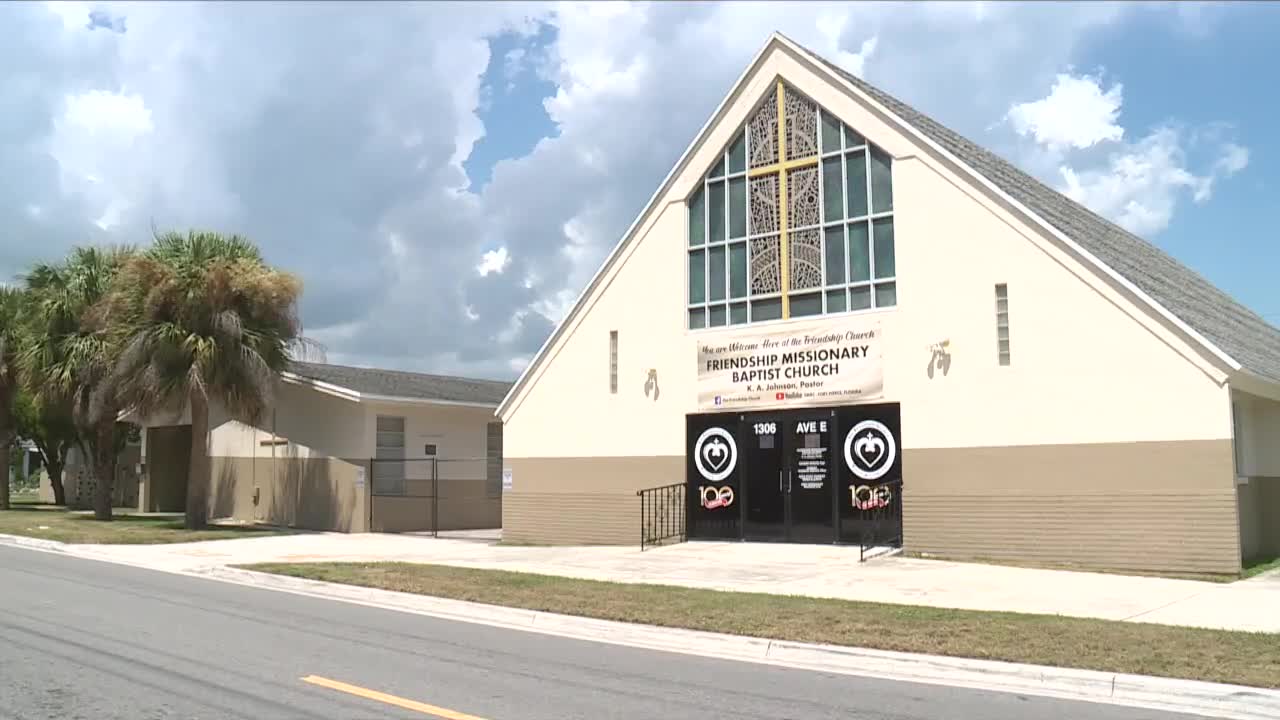
Source: Faith in Florida
